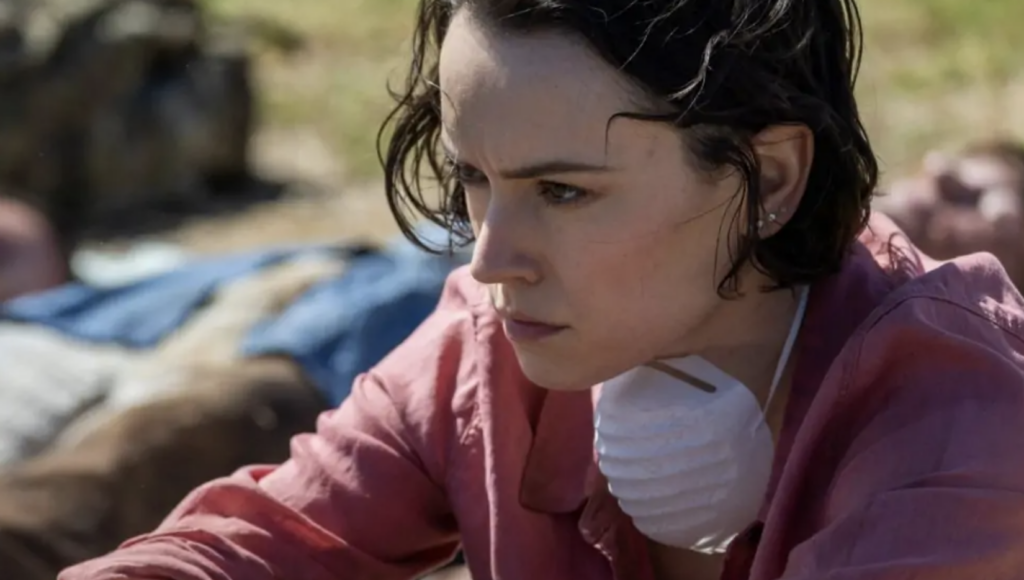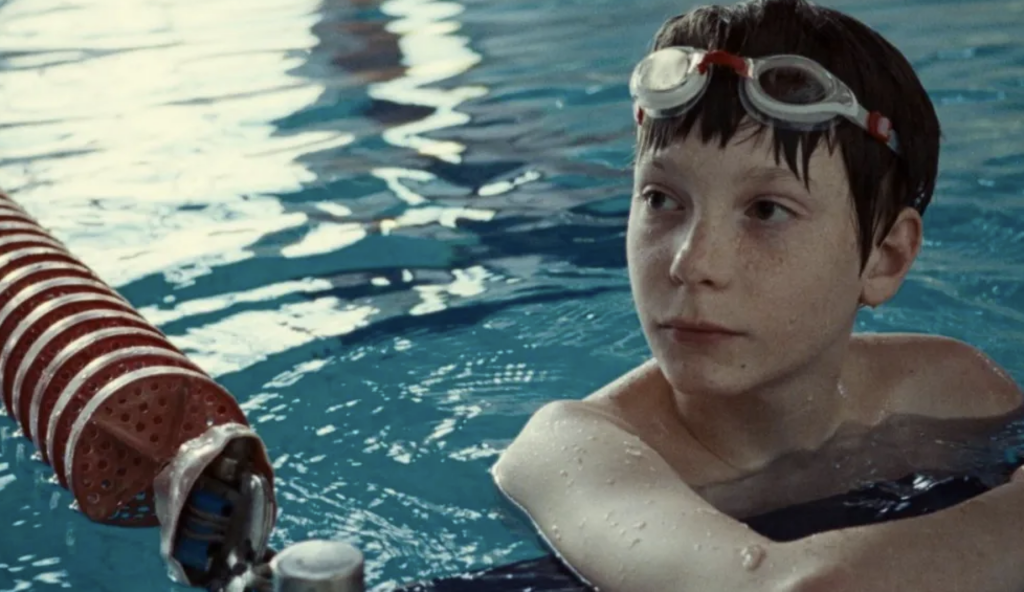On Swift Horses is a mid-century period drama that has Jacob Elordi but little else
Did you know it was hard to be gay and/or female in the 50s? Well. There you go.
In the 1950s, Douglas Sirk made melodramas that combined soapy plots with sharp commentary on class, race, gender and sexuality in mid-century America. Against a technicolor backdrop, movies like Written on the Wind, All that Heaven Allows and Imitation of Life depicted characters struggling against social standards, domestic expectations or prescribed cultural roles to pursue the lives they desired. Sirk’s legacy lives on in directors like John Waters, who lovingly parodied the format in 1981’s Polyester, and Todd Haynes, whose Far From Heaven is a direct Sirk homage, and revisited that territory with his Patricia Highsmith adaptation Carol.
With its sweeping Sirkian title and hot young cast, On Swift Horses should fit right into that mold. Unfortunately, as much as it clearly wants to hit those notes, Daniel Minahan’s film falls into the trappings of a much duller subgenre: pretentious postmodern critique of suburban 50s life and the vision of the nuclear family it sold us. On Swift Horses desperately wants you to think it has something interesting to say, but there’s nothing here you haven’t seen better told somewhere else.
Muriel (Daisy Edgar-Jones) and Lee (Will Poulter) are living in Muriel’s late mother’s house in Kansas and considering marriage when Lee’s brother Julius (Jacob Elordi) shows up on their doorstep on Christmas Eve. Muriel recognizes a kindred spirit in Julius—they both like poker, they both enjoy taking risks—which puts her out of step with the sweet but straight-shooting Lee.
Muriel and Lee marry and move to California, where Muriel bets on horses and starts an affair with her way-too-cool-for-this-nonsense lesbian neighbor Sandra (Sasha Calle). Julius moves to Las Vegas, where he counts cards and starts a relationship with Henry (Diego Calva), who hatches a plan with Julius to cheat the casino where they both work. Through all this, Muriel and Julius keep in touch through letters.
Muriel and Julius’ stories are interesting on their own. There’s an innate tension in Muriel developing a gambling habit to distract from her dissatisfaction in her vanilla marriage, and how that transitions to exploring her sexual orientation. Julius and Henry’s relationship is intriguingly seedy and visually arresting, with high-stakes gaming and back-room liaisons transitioning to watching bomb tests out in the desert over cocktails.
Unfortunately, like the novel it’s adapted from, On Swift Horses splits focus between Muriel and Julius, meaning we only get half of their stories, and therefore half the character development.
Edgar-Jones’ Muriel especially suffers, because she has further to go on her journey of self-discovery than Elordi’s Julius. He already knows he’s gay. Muriel doesn’t figure that out until she’s married and living a life she doesn’t want. Her character’s truncated journey feels not only inert but selfish, as her growth comes at the steep emotional expense of Lee and Sandra.
What’s more, nothing in On Swift Horses offers any new insights into mid-century life, its stultifying social limitations and the irony of those limitations in light of the country’s economic and technological progress.
Did you know it was hard to be a gay person in the 1950s? Surely you did, it’s still hard now. Did you know women struggled with limiting professional and domestic roles and men straight up didn’t care? Of course you did! Mad Men, The Marvelous Mrs. Maisel, Revolutionary Road, and The Hours exist. More to the point, Douglas Sirk’s movies exist—which addressed all these topics and more in the period they depicted.
It’s possible that with the right approach On Swift Horses could have been something much more interesting than it is, but it lacks the distinct vision required to pull that off. Waters and Haynes harnessed Sirk’s tone and made it play with their own observations and interests.
On Swift Horses appears to have no interests of its own; if it does, those interests are dated to a time in the mid-aughts when popular culture was much more interested in stories like this one.





